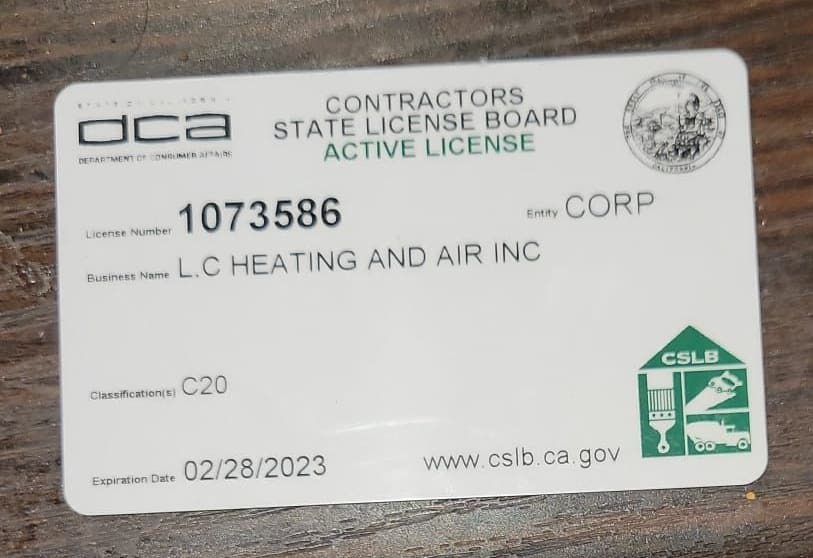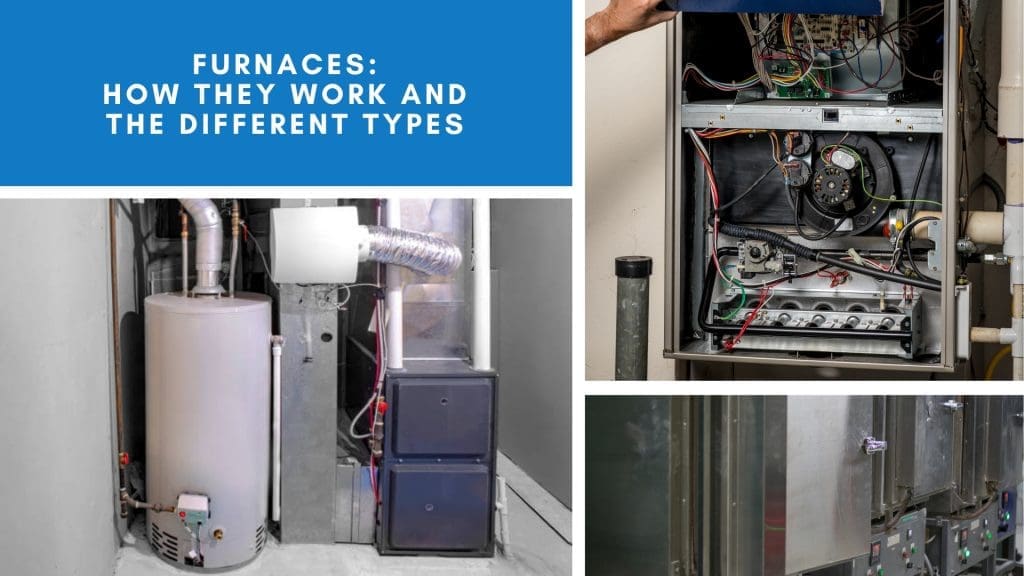In today’s fast-paced world, where comfort is a priority, the role of HVAC (Heating, Ventilation, and Air Conditioning) professionals is more crucial than ever. With the increasing complexity of HVAC systems, there’s a growing demand for skilled technicians who can ensure these systems operate efficiently. Whether you’re a homeowner seeking peace of mind or an aspiring technician, understanding the importance of HVAC certification can significantly impact your decisions. In California, obtaining a C-20 License is often a required step for those looking to perform HVAC work legally and professionally. Let’s delve into whether you need a certification to work in HVAC and what it entails, as well as the benefits it can bring to both technicians and clients.

What Is HVAC Certification?
Defining HVAC Certification
HVAC certification is an official recognition that an individual has the skills and knowledge necessary to perform tasks related to heating, ventilation, and air conditioning systems. This certification acts as a benchmark for ensuring that technicians have undergone rigorous training and testing to meet industry standards. It assures clients that the technician they hire is competent and capable of addressing their HVAC needs effectively. Furthermore, certified technicians are often up-to-date with the latest technological advancements and industry practices, making them valuable assets to any HVAC-related project.
Why Is Certification Important?
Certification is essential for several reasons. It not only validates a technician’s expertise but also instills confidence in clients who are assured of receiving quality service and adherence to industry standards. When you hire a certified HVAC technician, you’re investing in a professional who has demonstrated a commitment to excellence and safety. Moreover, certification often leads to better job opportunities and higher pay for technicians, as employers tend to favor candidates who have proven their skills through certification. Additionally, certified technicians are more likely to be involved in continuous learning, ensuring they remain knowledgeable about the latest industry trends and technologies.
License vs. Certification: Understanding the Difference
What Is an HVAC License?
An HVAC license is a legal authorization to perform HVAC services in a specific state or region. Licensing requirements vary by location and may involve passing exams, gaining work experience, and adhering to local regulations. These licenses ensure that technicians operate within the legal framework set by governing bodies, which helps in maintaining public safety and service quality. In many regions, obtaining a license may also require technicians to demonstrate their understanding of local building codes and environmental regulations, adding another layer of accountability.
Certification vs. License: Key Differences
While certification demonstrates proficiency in HVAC skills, a license is a legal requirement to operate as an HVAC technician in many areas. Licensing ensures that technicians comply with local laws and regulations, providing a safeguard for both the technician and the customer. Certification, on the other hand, focuses on technical expertise and knowledge, often going beyond the basic requirements of a license to include specialized skills. This distinction is crucial for aspiring HVAC professionals, as both certification and licensing play unique roles in career development and legal compliance. Understanding these differences helps technicians navigate their professional pathways effectively, ensuring they meet all necessary legal and industry standards.
Do You Need a Certification to Work on HVAC?
Legal Requirements and Industry Standards
In many regions, certification is not strictly required to work as an HVAC technician, but it is highly recommended. Certain states or municipalities may require licensing to perform specific tasks, such as handling refrigerants, which often involves obtaining specific certifications like the EPA 608 Certification. Additionally, some employers may mandate certification as part of their hiring criteria to ensure a high standard of service. As the industry evolves, more regions are recognizing the importance of certification, and it is becoming an increasingly common requirement for specialized roles or advanced positions within the HVAC sector.
Benefits of Being Certified
Being certified offers numerous advantages. It increases your credibility, enhances job prospects, and often leads to higher wages. Certified technicians are more likely to be hired by reputable companies and trusted by clients for their professionalism and expertise. Certification also opens doors to career advancement opportunities, as it sets the foundation for further specialization and leadership roles within the industry. Moreover, certification can provide a competitive edge in the job market, distinguishing you from peers who may not have taken this extra step to validate their skills. For clients, hiring a certified technician ensures peace of mind, knowing they are receiving service from a professional committed to maintaining high standards.
Pathways to HVAC Certification

by Jeffrey F Lin (https://unsplash.com/@jeffreyflin)
Educational Requirements
To pursue HVAC certification, most individuals begin with a high school diploma or equivalent. Following this, enrolling in an accredited HVAC training program provides the foundational knowledge and hands-on experience needed to succeed in the field. These programs cover essential topics such as system design, installation, maintenance, and safety protocols, preparing students for the diverse challenges they may encounter in their careers. Many programs also offer opportunities for students to specialize in particular areas of HVAC, such as commercial systems or residential installations, allowing them to tailor their education to their career aspirations.
Types of HVAC Certifications
There are several types of HVAC certifications available, each catering to different aspects of the trade. Some of the most common include:
- EPA 608 Certification: Required to handle refrigerants safely, ensuring compliance with environmental regulations.
- NATE Certification: Recognized for demonstrating technical expertise and proficiency, often preferred by employers for its rigorous standards.
- HVAC Excellence Certification: Offers a range of certifications for various levels of expertise, from entry-level to advanced.
- RSES Certification: Focuses on refrigeration and HVAC system efficiency, ideal for those looking to specialize in energy-efficient systems.
These certifications not only enhance a technician’s credentials but also provide specialized knowledge that can be crucial for certain jobs. Choosing the right certification depends on your career goals and the specific requirements of your desired position within the HVAC industry.
Steps to Get Certified
- Enroll in an Accredited Program: Start with a reputable HVAC training program to gain the necessary theoretical and practical knowledge.
- Gain Practical Experience: Participate in internships or entry-level positions to gain hands-on experience and apply what you’ve learned in real-world settings.
- Prepare for Exams: Study thoroughly for the certification exams relevant to your career goals, using study guides and practice tests to ensure you’re ready.
- Apply for Certification: Submit the necessary documents and fees to the certifying body, ensuring all prerequisites are fulfilled.
- Maintain Certification: Stay updated with continuing education and renew your certification as required, keeping your skills sharp and your credentials current.
The Role of Certified HVAC Technicians
Ensuring Quality and Customer Satisfaction
Certified HVAC technicians are committed to providing high-quality service and ensuring customer satisfaction. Their expertise allows them to diagnose and resolve issues efficiently, minimizing downtime and inconvenience for clients. They are trained to handle complex systems with precision, ensuring optimal performance and energy efficiency. This level of service not only improves customer satisfaction but also builds long-term trust and loyalty, as clients are more likely to return to technicians they know can deliver reliable results.

Meeting Industry Standards
Certified professionals adhere to industry standards and best practices, ensuring safety and compliance with regulations. This commitment to excellence not only protects clients but also enhances the technician’s reputation in the industry. By consistently meeting or exceeding these standards, certified technicians contribute to the overall improvement of industry practices. Furthermore, they play a critical role in educating clients about proper system maintenance and energy-saving practices, which can lead to significant cost savings and environmental benefits.
HVAC Certification Costs and Considerations
Financial Investment
The cost of obtaining HVAC certification varies depending on the program and certification type. While the initial investment may seem significant, the long-term benefits in career advancement and earning potential make it a worthwhile endeavor. Many training programs offer financial aid or payment plans to help students manage the costs. Investing in certification is also an investment in your professional future, as it can lead to better job opportunities, higher wages, and increased job satisfaction.
Long-Term Career Benefits
Certified HVAC technicians often enjoy greater job security, higher wages, and opportunities for advancement. Employers value certification as a mark of dedication and expertise, making certified individuals more competitive in the job market. Additionally, certification can lead to specialized roles within the industry, such as system design or energy auditing, which may offer higher salaries and greater responsibilities. Over time, the benefits of certification can far outweigh the initial costs, making it an essential step for those serious about a career in HVAC.
Conclusion: Is HVAC Certification Right for You?
In summary, while you may not always need a certification to work in HVAC, obtaining one is a wise decision. It enhances your credibility, opens doors to better job opportunities, and ensures that you are equipped with the skills necessary to provide top-notch service. Whether you’re considering a career in HVAC or are a homeowner seeking reliable services, certification is a hallmark of quality and professionalism in the industry. For technicians, it represents a commitment to ongoing learning and professional growth, while for clients, it offers assurance of expertise and reliability.
For those residing in the Los Angeles metropolitan area, LC Heating and Air Conditioning is your trusted partner for all HVAC needs. Our team of certified technicians is dedicated to delivering exceptional service and ensuring your comfort year-round. If you find yourself facing HVAC challenges, remember that professional help is just a call away. By choosing certified professionals, you invest in quality, reliability, and peace of mind. Whether it’s installation, maintenance, or repair, trust the experts to keep your environment comfortable and efficient.
Speaking of HVAC and certifications, you might be interested in learning more about the fundamentals of Heating, Ventilation, and Air Conditioning (HVAC). For those curious about the types of professional licenses involved in trade work, the Contractor License article offers helpful insights. Additionally, if you’re exploring career paths in this field, the history and development of Skilled Trades can provide useful context on the growing demand and importance of specialized training.


